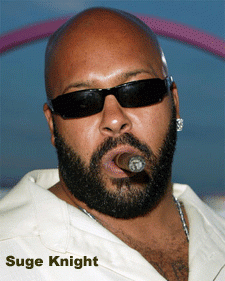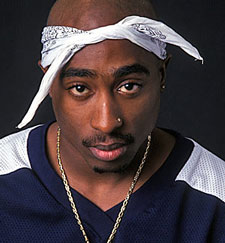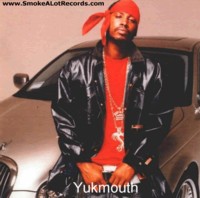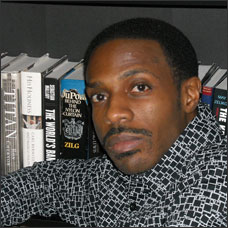In this interview segment which originally aired Oct 21 2010, we sat down and chop it up with late Eazy E’s business partner and former NWA manager Jerry Heller who just released a book of his memoirs called ‘Ruthless’.
Not only does Heller meticulously detail the inner workings and all the behind the scenes dirt that went on with NWA, he also goes into great detail about the seedy music world of Rock-N-Roll’s hey day in the 60s and 70s where he played a key role. Make no mistake the music biz is definitely grimy.
In this segment we talk to Heller about the music biz in the hey days of Rock-N-Roll. Heller talks about all the key players that he came up with and rolled with including people like the late Bill Graham, David Geffen, Clive Davis and many more. He talks about how he actually was responsible for bringing Elton John to the US and giving him his first break.
Heller breaks down the rough and tumble tactics of old-time music guys and explains that while much of it was mob controlled and sometimes seedy ‘it was fair and that there were fast and hard rules that everyone played by’. He noted that all that changed and went out the window when Death Row CEO Suge Knight came in the game.
Heller talked to us about the importance of negotiating and striking good deals. It’s a key highlight in his book and during the interview he explained how and why Ruthless stayed successful while other small labels which actually sold more records like Delicious Vinyl wound up folding because of bad deals.

Eazy E w/ Jerry heller
He explains the type of relationship he and Eazy E had and how each of them brought a certain style, flare and business insight to the table that allowed Ruthless to be one of the music industry’s most successful record labels. He explained the decision behind rejecting Eazy E’s initial offer to go into business 50/50. He felt that Ruthless should 100% Black owned and that he would work for Eazy. He described Eazy as his best friend and one of the smartest men he had ever met.
He also recounted how the pair first met. Heller said that Eazy offered Alonzo Williams of the World Class Wrecking Crew 750 dollars to introduce him. It was at this meeting that Eazy played a rough cut of the now classic record ‘Boyz in the Hood’. He described the song as Gill Scott Heron, the Last Poets, The Black Panthers and the Rollingstones all rolled into one.
Click link below to peep pt1 of our interview w/ Jerry Heller
Still Ruthless An Interview w/ Former NWA Manager Jerry Heller pt2
Click HERE to peep pt2 of our interview w/ Jerry Heller
In this segment Heller talks at length about the early rap scene in LA and how he got involved via Macola Records which housed West Coast pioneering acts like Egyptian Lover, LA Dream Team, World Class Wrecking Crew, Rodney O & Joe Cooley, Ice T and JJ Fad to name a few.
In this segment Heller talks about why he called NWA the Black Beatles which each player MC Ren, Ice Cube, DJ Yella, Dr Dre and Eazy E all holding down key roles. Cube was the chief lyricists, Dr was the beat maker, Eazy was the conceptualizer while Heller was the financier.
Lastly we talked at length about the crack game and the type of impact it had in the community and how it was reflected in NWA’s music.
In part 2 Heller opens up and airs it out about Ice Cube and refutes Cube’s claims about him not getting paid. Heller breaks out some solid numbers and contractual breakdowns to illustrate his point. He also touches upon the situation he had with Dr Dre and Suge Knight when they formed Death Row Records.
Heller also detailed the situations that lead up to the group doing the song F—Tha Police and the reaction to it including the infamous letter from the FBI. Heller noted that they recently discovered that Al Gore’s wife Tipper Gore may have been a key reason that ominous letter was sent out.
We also talked about Eazy E’s visit to the White House where he sat down and met George Bush Sr in the aftermath of the FBI/ Police backlash. For Eazy it was brilliant marketing ploy.
Heller also laid out the circumstances behind the death threats Eazy E received and how it was discovered that he was on hit list by some Neo-Nazi-Skinheads. The FBI never bothered to inform Eazy that his life was in danger. Heller speculates that it may have been because of the F– Tha Police song.
Heller talked about the relationship Eazy E had with the now defunct Jewish Defense League (JDL) and how he admired the group for their slogan ‘Never Again’. In fact Eazy had plans to do a movie about the group.
Jerry Heller details the inner workings of NWA
 We talked about the recent revelations of JDL members supposedly extorting money from rap artists including the late 2Pac. Heller claims he had no knowledge of that, but it was no secret that in the aftermath of the Suge Knight shake down incident where Eazy was forced to sign over Dr Dre, Michele and DOC, that Ruthless was protected by Israeli trained/ connected security forces.
We talked about the recent revelations of JDL members supposedly extorting money from rap artists including the late 2Pac. Heller claims he had no knowledge of that, but it was no secret that in the aftermath of the Suge Knight shake down incident where Eazy was forced to sign over Dr Dre, Michele and DOC, that Ruthless was protected by Israeli trained/ connected security forces.
Our conversation later turned to a brief discussion of Black-Jewish relationships in the music industry. Heller felt that the partnership him and Eazy formed was model one and that it helped build lots of bridges.
We concluded our interview with Heller talking about some of his upcoming projects including starting a new record label that focuses on Latino Rap and Music with a message
Click the link below to peep pt2 of our Interview with Jerry Heller
Return To Davey D’s Hip Hop Corner
Podcast: Play in new window | Download



 This is a pretty good interview w/ Snoop Dogg done by the homie DJ Skee.. Here snoop talks about his transition from Snoop Dogg to Snoop Lion.. He talks about the life circumstances that led to him digging reggae. Snoop explains he’s long wanted to express himself in a variety of ways including wanting to sing..He also notes that he’s become more spiritually grounded..He now puts family first and music second.. It took a while for him to evolve to that mindset..
This is a pretty good interview w/ Snoop Dogg done by the homie DJ Skee.. Here snoop talks about his transition from Snoop Dogg to Snoop Lion.. He talks about the life circumstances that led to him digging reggae. Snoop explains he’s long wanted to express himself in a variety of ways including wanting to sing..He also notes that he’s become more spiritually grounded..He now puts family first and music second.. It took a while for him to evolve to that mindset.. Comedian
Comedian 










 When the Los Angeles Times article came out implying that Biggie was the mastermind behind the murder of Tupac I immediately recognized that some force(s) was attempting to use the murder of both rappers to divide the Black community, in particular, in a manner similar to how the murder of Malcolm X had been used, for over 30 years.
When the Los Angeles Times article came out implying that Biggie was the mastermind behind the murder of Tupac I immediately recognized that some force(s) was attempting to use the murder of both rappers to divide the Black community, in particular, in a manner similar to how the murder of Malcolm X had been used, for over 30 years. Remember what I included last week of the contents of a letter Lt. Col. Fletcher Prouty, author of the book JFK, wrote to me. He wrote of his covert responsibilities in the U.S. government as well as what was really involved in the assassination of President Kennedy, beyond the murder itself:
Remember what I included last week of the contents of a letter Lt. Col. Fletcher Prouty, author of the book JFK, wrote to me. He wrote of his covert responsibilities in the U.S. government as well as what was really involved in the assassination of President Kennedy, beyond the murder itself: That after nearly two years of no
That after nearly two years of no 
 In some way, something similar has to happen where Tupac and Biggie’s murders are concerned, if healing is to take place and manipulation is to be ended. It would be helpful, if Tupac and Biggie’s families and Suge Knight and Sean Combs with the help of their supporters, spiritual leaders, advisers, and East and West Coast artists and music executives, were one day able to put their personal hurt aside and recognize and understand that their pain and emotions are being used to divide whole communities. P. Diddy was present that night in the Apollo when the Minister and Sister Betty began to publicly reconcile. Before, during, and after that Apollo meeting, Minister Farrakhan called for the government to open the files on the assassination of both Malcolm X and Dr. Martin Luther King. Puffy’s relative public silence on the matter of the Los Angeles Times story on Biggie should be studied. It has had both a positive and negative affect on the situation.
In some way, something similar has to happen where Tupac and Biggie’s murders are concerned, if healing is to take place and manipulation is to be ended. It would be helpful, if Tupac and Biggie’s families and Suge Knight and Sean Combs with the help of their supporters, spiritual leaders, advisers, and East and West Coast artists and music executives, were one day able to put their personal hurt aside and recognize and understand that their pain and emotions are being used to divide whole communities. P. Diddy was present that night in the Apollo when the Minister and Sister Betty began to publicly reconcile. Before, during, and after that Apollo meeting, Minister Farrakhan called for the government to open the files on the assassination of both Malcolm X and Dr. Martin Luther King. Puffy’s relative public silence on the matter of the Los Angeles Times story on Biggie should be studied. It has had both a positive and negative affect on the situation.
 To our knowledge, not a single major Hip-Hop magazine has done a cover story on 1)The fact that the NYPD in 2001 openly admitted that it has the New York Hip-Hop community and industry under surveillance 2) The DEA and Houston Police Department’s investigation, use of informants, and COINTELPRO-like tactics in the investigation against Scarface and Rap-A-Lot Records in 2000 3) The federal investigations – FBI, ATF and IRS pertaining to Tupac, Biggie, Death Row and Bad Boy or the fact that both artists were under surveillance in the general time period or night of their murders.
To our knowledge, not a single major Hip-Hop magazine has done a cover story on 1)The fact that the NYPD in 2001 openly admitted that it has the New York Hip-Hop community and industry under surveillance 2) The DEA and Houston Police Department’s investigation, use of informants, and COINTELPRO-like tactics in the investigation against Scarface and Rap-A-Lot Records in 2000 3) The federal investigations – FBI, ATF and IRS pertaining to Tupac, Biggie, Death Row and Bad Boy or the fact that both artists were under surveillance in the general time period or night of their murders.